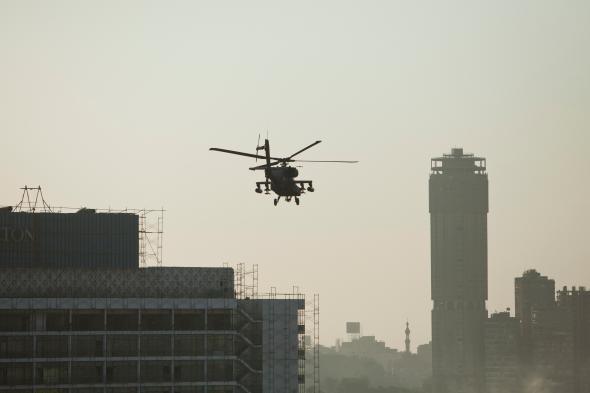John Kerry reassuring the world that the cut in U.S. aid to Egypt won’t have much of an impact on the country and that the U.S. remains committed to supporting the Egyptian government feels a bit reminiscent of the time last month when he threatened the Syrian government with “unbelievably small” consequences for using chemical weapons, though given how that ultimately turned out, I’m reluctant to criticize.
As I mentioned yesterday, the U.S. does have the ability to exercise some leverage over the Egyptian government, given the military’s reliance on U.S. parts and maintenance. But the State Department has specified that “We will continue to provide parts for U.S.-origin military equipment as well as military training and education.” Rather, the U.S. is withholding $260 million from the general Egyptian budget, which Saudi Arabia can cover, plus delaying the delivery of “several big-ticket items, including Apache attack helicopters, Harpoon missiles, M1-A1 tank parts and F-16 warplanes.”
So essentially, the Egyptian military gets what it really needs to continue operating but doesn’t get any new toys until it makes some progress on democracy. This could actually be somewhat beneficial for military leaders, who can now seem to be standing up to Washington while still receiving U.S. support.
The U.S. is holding open the possibility of aid being restored if there’s “credible progress” toward setting up an inclusive government, but one new question is what exactly this progress might entail. A Cairo court banned “all activities” by the Muslim Brotherhood and seized its funds last week. There are also legal challenges to the Brotherhood’s political wing, the Freedom and Justice Party.
Will the U.S. government be willing to accept an election in which the party that won the last vote is barred from participating or at least greatly marginalized? The U.S. had no problem providing military aid under these conditions when Hosni Mubarak was president, but obviously we’re a bit more invested in the process now.
